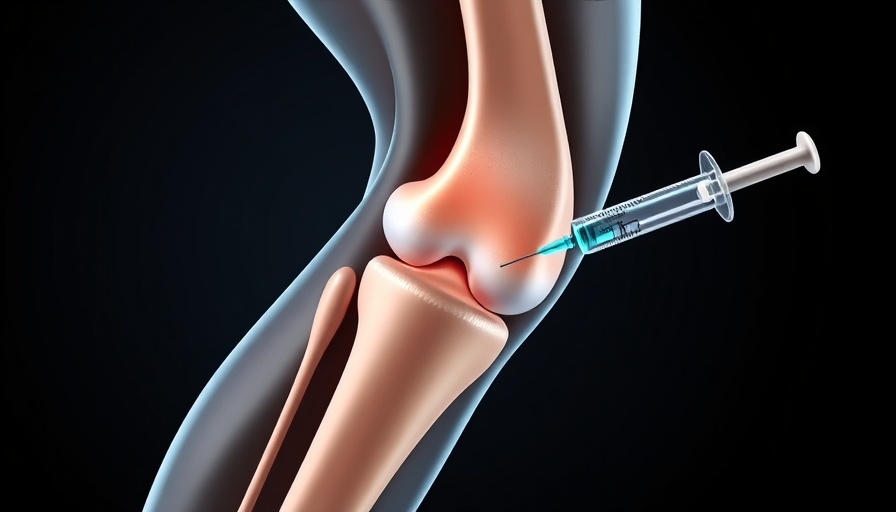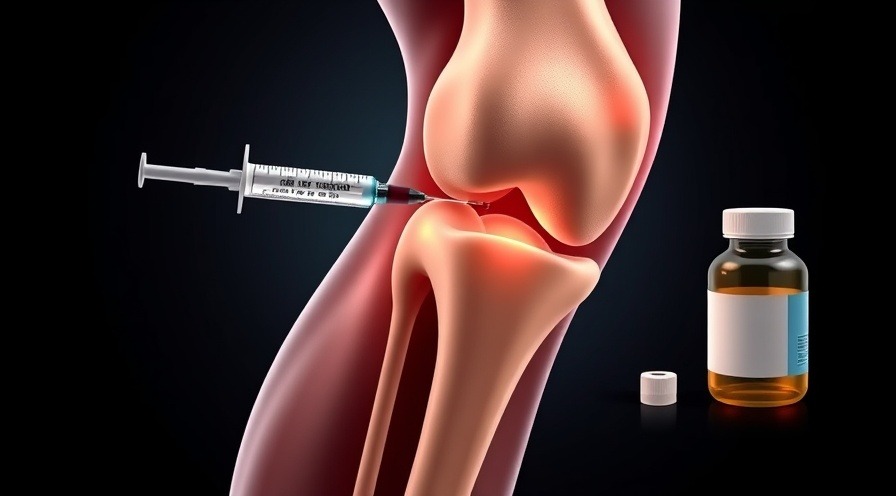
Understanding Knee Injections for Osteoarthritis: What You Need to Know
If you're among the millions suffering from knee osteoarthritis, you may already be familiar with the telltale signs: aching pain, stiffness, and a frustrating, creaky sensation when you move. When traditional treatments like pain medications, physical therapy, and lifestyle adjustments no longer do the trick, your doctor might mention knee injections as a potential solution. But how do these injections work, and are they truly worth the effort? Let's delve into the details to demystify knee injections for osteoarthritis.
In 'What to Know About Knee Injections Video 2025,' the discussion dives into knee injections for osteoarthritis, exploring key insights that sparked deeper analysis on our end.
The Role of Knee Injections in Osteoarthritis Management
The overarching goal of knee injections is to tackle the inflammation and pain associated with the breakdown of cartilage in the knee joint. Over time, this cartilage deterioration causes painful contact between bones, making movement difficult and uncomfortable. By injecting substances into the joint, these treatments aim to alleviate symptoms, at least temporarily, and improve mobility.
Types of Knee Injections: What Are Your Options?
There are three main types of knee injections available for osteoarthritis treatment: corticosteroid injections, hyaluronic acid gel injections, and platelet-rich plasma (PRP) injections. Each has its distinct mechanisms, benefits, and drawbacks.
Corticosteroid Injections
These injections act as powerful anti-inflammatory agents and provide swift relief, often within just a few days. They can control inflammation during flare-ups and may last for several weeks to months.
Pros: Quick relief; often covered by insurance.
Cons: Can weaken cartilage with repetitive use; may temporarily raise blood sugar levels.
Hyaluronic Acid Gel Injections
Also known as visco supplementation, these injections mimic the natural fluid in your joints, promoting better lubrication. Many patients report less stiffness and improved mobility, although the results may vary.
Pros: Potential for relief lasting 3 to 6 months; reduces stiffness.
Cons: Might not be effective for everyone; often not covered by insurance unless other treatments have failed.
Platelet-Rich Plasma (PRP) Injections
This innovative approach utilizes your own blood, which is processed to concentrate the platelets before being injected back into the knee. This method harnesses your body’s healing abilities, which some studies suggest may slow down cartilage breakdown.
Pros: Potential for natural healing; may slow cartilage deterioration.
Cons: Considered experimental by some; results can vary; often expensive without insurance coverage.

What to Expect During a Knee Injection Procedure
The process of receiving a knee injection is typically quick and done in your doctor's office. After cleaning and numbing the area, your doctor will guide a needle into the joint. Most people experience minimal discomfort, although it's not unusual to feel some pressure or mild soreness for a day or two afterward.
For optimal results following the injection, doctors recommend resting for 24 to 48 hours, avoiding strenuous activities, and following any prescribed physical therapy plans. Maintaining a healthy weight can also play a significant role in reducing stress on your knees.
When Should You Consider Skipping Injections?
While knee injections can provide relief, they aren’t suitable for everyone. If you have an active infection, bleeding disorders, or severe joint damage, your doctor may recommend alternative treatments instead.
The Bottom Line: Are Knee Injections Worth It?
In conclusion, knee injections are not a cure for osteoarthritis but can offer significant relief when other treatments fail. If you find yourself in the dilemma of persistent pain despite over-the-counter medications, discuss knee injections with your healthcare provider to weigh the pros and cons against your symptoms, lifestyle, and insurance coverage.
In the realm of knee osteoarthritis, staying informed can empower you to make decisions that enhance your quality of life. Seeking treatments that work for you, while considering knee injections as a potential option, might just be the step towards reclaiming control over your pain and mobility.
Disclaimer: The information provided on this website is for general informational purposes only and should not be considered medical advice, diagnosis, or treatment. Always consult a qualified healthcare professional before making any decisions or taking actions related to your health, including but not limited to medical conditions, treatments, diets, supplements, or exercise programs. The content on this site is not intended to replace professional medical guidance. The website and its authors are not responsible for any actions taken based on the information provided.
 Add Row
Add Row  Add
Add 




 Add Row
Add Row  Add
Add 

Write A Comment